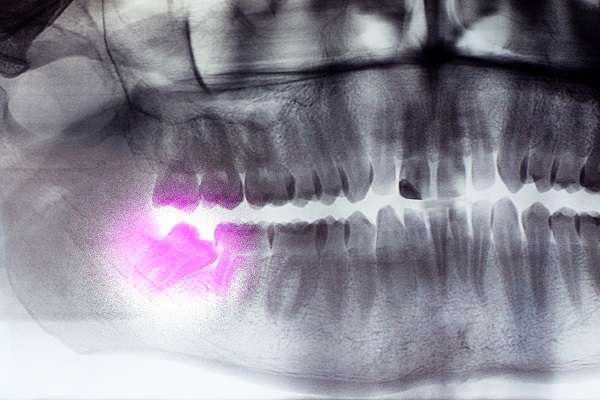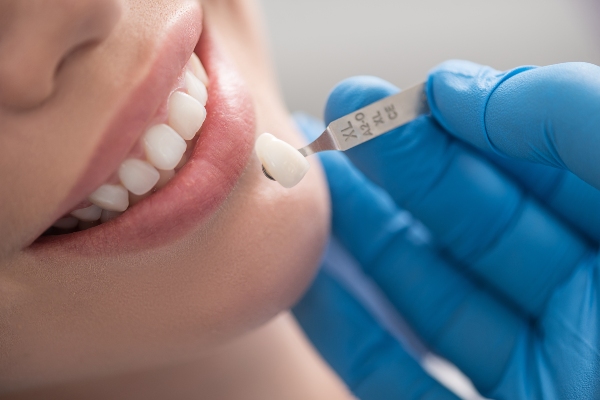What Are Impacted Wisdom Teeth?

Concerned about impacted wisdom teeth? Read on to learn more about this condition and how it is addressed. The third pair of molars at the rear of the mouth is known as the wisdom teeth. These teeth usually appear in late adolescence or early adulthood. Impaction is when a wisdom tooth becomes trapped beneath your gums or does not have enough space for emerging. Wisdom teeth that are impacted are more susceptible to dental issues such as infection and decay.
An overview of impacted wisdom teeth
Some individuals with impacted wisdom teeth may have no symptoms, while others will experience significant discomfort. Partially impacted wisdom teeth may erupt through the gums. Food may get lodged in a partially impacted wisdom tooth, making cleaning the tooth more difficult. This condition can be excruciating for some individuals.
If infection or other issues set in, patients may experience symptoms like jaw pain and swelling, bad breath, unpleasant taste in the mouth, difficulties opening the mouth, and red, swollen, or inflamed gums. In some instances, the affected tooth may never emerge from the gums and these are referred to as completely impacted wisdom teeth.
Causes and risks of wisdom teeth impaction
Wisdom teeth get impacted when there is not enough room on the jaw for them to grow. The tooth may erupt at odd angles, causing it to become impacted. Those who have a small jaw structure are more at risk of impacted wisdom teeth. Although there is no way to avoid an impacted tooth, proper dental care can help patients prevent complications.
Diagnosing and handling impacted wisdom teeth
A dentist can diagnose wisdom tooth impaction by inspecting the teeth and taking a simple oral x-ray. An x-ray may reveal whether the teeth are impacted and whether or not other teeth or bones are affected. If the wisdom teeth are impacted, the dentist will review the available options.
The dentist will recommend extraction of the impacted wisdom teeth if they create symptoms or dental issues. The removal of wisdom teeth is typically done as an outpatient procedure, meaning patients will be able to return home the same day.
During the operation, the dental professional will administer a local anesthetic. They will first create an incision in the gums and remove any troublesome bone to extract the tooth. Stitches will be used to seal the incision, and gauze will be used to cover the area. The procedure typically takes between 30 minutes to one hour to complete.
It may be more difficult to perform tooth extraction if they are entirely impacted and buried deep inside the gums or jawbone than if they have erupted through the gum.
Are you having issues with your wisdom teeth?
If the impacted wisdom teeth are not causing any problems, there might be no need for extraction. Some dentists recommend removing the teeth to avoid future issues. If the dentist believes an extraction is not needed, the patient will need to be closely watched for possible dental issues.
Request an appointment here: https://www.tanqueverdedental.com or call Oro Valley Family Dentistry at (520) 833-5261 for an appointment in our Tucson office.
Check out what others are saying about our dental services on Yelp: Wisdom Teeth in Tucson, AZ.
Related Posts
There are notable benefits to wisdom tooth extraction, and understanding when it is recommended and what to expect throughout the treatment and aftercare process can help you ease any anxieties that you have ahead of your scheduled consultation or wisdom tooth extraction procedure.The most common questions patients have about wisdom tooth extractions deal with the…
Wisdom tooth extraction is a procedure that is not typically enjoyable but is often necessary in order to eliminate pain and crowding within the oral cavity. Individuals that are preparing for wisdom tooth extraction may find it helpful to get familiar with the recovery process, which can be involved, depending on the number of teeth…
There are many reasons that a dentist may require a patient to have a tooth extraction, particularly if the tooth causes problems with the patient’s oral health, function or appearance. After tooth extraction, you should be sure to follow all aftercare instructions provided by the dentist and understand what options are available to replace the…
Emergency dentistry deals with dental emergencies that require immediate treatment. For example, an infected tooth requires urgent care since it causes excruciating pain, and the infection is always a risk of expanding to other parts of the body.Here are some fascinating facts everyone should know about emergency dentistry:The emergency dental care umbrella covers any dental…


